Germany

Travel enthusiasts seeking an unparalleled blend of rich history, vibrant culture, and breathtaking landscapes will find Germany an irresistible destination. Travel to Germany and discover a nation that artfully juxtaposes the old and the new, with medieval castles standing proudly amid cutting-edge architectural marvels. Germany's storied past is intricately woven into its present, creating a tapestry of experiences that cater to every traveler’s palate. Imagine strolling through the bustling streets of Berlin, where every corner tells a poignant story of resilience and reunification, or marveling at the fairy-tale landscapes along the Romantic Road, dotted with picturesque villages and towering castles like Neuschwanstein. Travel to Germany and embrace the country's culinary prowess, where every region offers a unique flavor palette that ranges from hearty Bavarian sausages and pretzels to delicate Black Forest cakes. Outdoor enthusiasts will revel in Germany's diverse natural beauty, from the rugged Alps in the south to the tranquil beaches along the Baltic and North Seas. Germany is also a haven for art and music lovers, with legendary festivals like Oktoberfest and world-class museums such as Munich’s Alte Pinakothek housing masterpieces from every era. For those seeking relaxation, Germany’s numerous spas and wellness retreats offer the perfect respite. Every city, town, and village in Germany has something unique to offer, making each travel experience one-of-a-kind. Whether exploring the modern vibrancy of cities or the timeless charm of rural areas, traveling to Germany promises memories that will last a lifetime.
The History of Germany
Travel to Germany and immerse yourself in a nation rich in history, culture, and breathtaking landscapes. From medieval castles perched on high cliffs to bustling modern metropolises, Germany has something to captivate every traveler. Germany's history is nothing short of fascinating, offering stories and landmarks that span from ancient Roman settlements to pivotal roles in world-changing events. Travel enthusiasts and history buffs alike will find that a journey through Germany provides an unparalleled dive into eras that have shaped the world as we know it today.
Medieval Marvels and Castles
One of the greatest draws for those who travel to Germany is its collection of stunning, well-preserved medieval castles and cathedrals. Neuschwanstein Castle, often called the "fairy-tale castle," was actually the inspiration for Disney's Sleeping Beauty Castle. Perched on a rugged hill in Bavaria, it offers breathtaking views and a glimpse into the Bavarian monarchy's luxurious past. Another captivating spot is the Heidelberg Castle, an iconic ruin that blends Gothic and Renaissance styles, nestled in the lush landscapes of the Neckar Valley. Visiting these landmarks lets travelers step back in time to an age of knights, kings, and legends.
The Tapestry of World War History
Germany is often regarded as an essential destination for those interested in World War history. Cities such as Berlin and Nuremberg house numerous memorials, museums, and historical sites that provide deep insights into the events of both World War I and World War II. The Berlin Wall, the Holocaust Memorial, and the Nuremberg Trials Memorial are just a few of the sites that enable travelers to gain a comprehensive understanding of Germany's 20th-century past. Walking through the remnants of the Berlin Wall, you can almost feel the tension that once divided a nation, making any visit deeply educational and profoundly moving.
Cultural Epicenter of Modern Europe
Germany isn't just about its historic past; it is also a cultural powerhouse in modern Europe. Cities like Berlin, Munich, and Hamburg are vibrant hubs of art, music, and innovation. Berlin’s Museum Island boasts five internationally significant museums, while Munich’s Oktoberfest is the world's largest beer festival, offering a unique lens into Bavarian culture. Furthermore, Germany's contributions to classical music and philosophy can be explored in depth, with destinations such as Beethoven’s birthplace in Bonn and the Goethe House in Frankfurt. Travelers to Germany will find that contemporary culture is just as enriching as its historic sites.
When you travel to Germany, you aren't just taking a trip; you are embarking on a journey through time and space, where every city, every castle, and every monument has a story waiting to be told. Whether it's the allure of medieval beauty, the solemn lessons of 20th-century conflicts, or the vibrant cultural scenes of its modern cities, Germany promises an enriching experience for every traveler. Don't miss the opportunity to explore this dynamic country, where history lives and breathes around every corner.
The Culture of Germany
Germany, a land of enchanting landscapes, remarkable historic sites, and diverse cultural experiences, is a must-visit destination for travel enthusiasts. Germany is an exquisite blend of the past and the present, providing an unparalleled opportunity to dive into a rich cultural tapestry. When you travel to Germany, you’ll encounter a myriad of traditions, historical landmarks, and festivals that offer a glimpse into the nation’s unique way of life.
Explore Germany's Vibrant Festivals and Traditions
When you travel to Germany, timing your visit with one of the country’s many festivals can truly enhance your experience. Oktoberfest, perhaps the most famous German festival, transforms Munich into a colossal celebration of Bavarian culture. This lively event showcases traditional folk music, hearty German cuisine, and of course, an endless supply of beer. Additionally, the enchanting Christmas Markets, known as Weihnachtsmärkte, are sprinkled across cities like Nuremberg, Cologne, and Berlin, offering a magical atmosphere with glistening lights, festive stalls, and aromatic scents of mulled wine and gingerbread. These cultural festivals epitomize the joyful and communal spirit of the German people.
Delve into Germany's Rich Historical Legacy
Germany's history is as diverse as it is profound. From the medieval castles dotting the scenic Rhine Valley to the poignant remnants of the Berlin Wall, Germany is a treasure trove of historical landmarks. Travel to Germany to explore the grand Neuschwanstein Castle in Bavaria, often dubbed as the inspiration for Disney's Sleeping Beauty Castle. In Berlin, the Brandenburg Gate stands as a monumental symbol of Germany's reunification. Each city in Germany offers a unique historical narrative, making your travel to Germany a journey through time. Museums and memorials are plentiful, offering insight into Germany's pivotal role in shaping world history.
Experience German Culinary Delights
Germany's culinary tradition is yet another compelling reason to travel here. German cuisine is characterized by hearty and flavorful dishes, with each region offering its own specialties. Savor the classic Bratwurst in Nuremberg, indulge in the delectable Black Forest Cake in the Schwarzwald region, or enjoy the diverse street foods in Berlin, such as Currywurst. Germany is also renowned for its beer, with a tradition of brewing that dates back centuries. The Reinheitsgebot, or beer purity law, ensures that German beers remain of the highest quality. Wine lovers will equally appreciate the exquisite Rieslings from the country’s renowned wine regions, such as the Moselle Valley.
Engage with the Warm and Welcoming German People
Beyond the attractions, what truly makes travel to Germany special are its people. Germans are known for their warmth, hospitality, and a keen sense of order. While they may initially come across as reserved, Germans are approachable and eager to share their culture with visitors. Whether you're navigating the bustling cities or exploring the tranquil countryside, you’ll find the locals to be helpful and accommodating. Engaging with the people of Germany offers invaluable insights into the everyday life, values, and customs of this remarkable nation.
The Food of Germany
When you travel to Germany, you're embarking on an extraordinary journey through a culinary landscape rich with tradition, innovation, and diverse flavors. From the bustling beer halls of Munich to the tranquil vineyards along the Rhine, Germany offers a gastronomic adventure that is as varied as its stunning landscapes. Each region across Germany boasts its unique specialties, giving travelers a culinary map that promises something delicious at every stop.
Diverse Regional Cuisines
One of the standout features of travel to Germany is the incredible regional diversity in its cuisine. In Bavaria, you can indulge in hearty dishes like Schweinshaxe (roasted pork knuckle) and Weisswurst (white sausage), best enjoyed with a fresh pretzel and a cold glass of Hefeweizen beer. Head to the coastal regions of Hamburg and Bremen, and you'll find an array of seafood delights, including the iconic Fischbrötchen (fish sandwich) and delectable smoked eel. Each corner of Germany prides itself on its culinary traditions, ensuring that your taste buds are treated to a symphony of distinctive flavors as you explore.
Iconic German Desserts
Sweet tooth travelers will find Germany a veritable paradise of confectionery delights. One cannot travel to Germany without sampling a slice of Schwarzwälder Kirschtorte, or Black Forest cake, a decadent treat featuring layers of chocolate sponge, whipped cream, and cherries. In the streets of Saxony, especially during the festive Christmas markets, you can delight in Stollen, a fruit bread packed with nuts, spices, and marzipan. Let’s not forget about the Berliner, a jam-filled doughnut that has become a beloved treat all over the nation. These desserts not only satisfy cravings but also provide a delightful insight into Germany's baking heritage.
Beer and Wine Paradise
Germany is globally celebrated for its beer culture, anchored by centuries-old brewing traditions and laws, such as the Reinheitsgebot or Beer Purity Law. Whether you’re at the iconic Oktoberfest in Munich, savoring a crisp Pilsner in Berlin, or exploring the countless local breweries in the Franconian countryside, the variety of beer available is astounding. For wine enthusiasts, the Rhine and Moselle valleys offer some of the finest Rieslings in the world. Touring these regions, you’ll encounter beautiful vineyards, quaint wineries, and the opportunity to savor wines that perfectly complement the local cuisine. A travel to Germany for the beer and wine experience alone is immensely rewarding.
From quaint village eateries to Michelin-starred restaurants, travel to Germany ensures that every meal is an unforgettable experience. The dedication to culinary excellence and the love for fresh, local ingredients shine through every dish. The charm of traditional recipes coupled with contemporary culinary creativity invites every traveler to Germany to embark on a flavorful voyage. So, pack your bags and bring along a hearty appetite – Germany is ready to impress and satiate every food enthusiast's palate.
What to See and Do in Germany
Travel to Germany is an exhilarating experience, rich with historic landmarks, cultural treasures, and diverse landscapes. Each city offers a unique charm and boasts its own set of must-see attractions. Here are ten top things every traveler should do while exploring Germany, ensuring a memorable journey filled with adventure and discovery.
Explore the Brandenburg Gate in Berlin, Germany
No trip to Germany is complete without visiting the iconic Brandenburg Gate in Berlin, Germany. This historic monument, once a symbol of division during the Cold War, now stands as a beacon of unity and peace. Stroll around the Pariser Platz, where you'll find significant government buildings and embassies, and immerse yourself in the pulsating heart of the capital. The nearby Tiergarten Park offers a peaceful retreat from the bustling city life, perfect for an afternoon of relaxation.
Take a Romantic Cruise on the Rhine River
Germany's Rhine River is famous for its romantic landscapes dotted with castles, vineyards, and charming villages. Embark on a scenic cruise from Mainz, Germany, and sail through the picturesque Middle Rhine Valley, a UNESCO World Heritage site. Along the way, you'll pass the legendary Lorelei rock and numerous medieval fortresses perched on hilltops. These river cruises offer guided tours and wine tastings, allowing travelers to savor the region's renowned Riesling wines.
Visit the Neuschwanstein Castle in Bavaria, Germany
The fairy-tale Neuschwanstein Castle in Bavaria, Germany, is a must-see for anyone traveling to Germany. This 19th-century Romanesque revival castle, built by King Ludwig II, inspired Walt Disney's Cinderella Castle. Tour its opulent interior, decorated with stunning frescoes and intricate woodwork, and take in the breathtaking views of the surrounding Alpine foothills. Be sure to explore the nearby Hohenschwangau Castle, Ludwig's childhood home, to complete your immersive experience.
Experience Oktoberfest in Munich, Germany
Oktoberfest in Munich, Germany, is the world's largest beer festival, attracting millions of visitors from around the globe. Running from late September to the first weekend in October, this traditional Bavarian event features massive beer tents, authentic German cuisine, and lively folk music. Don your lederhosen or dirndl and join the festivities, where you can sample a variety of local brews and feast on pretzels, sausages, and roast chicken. Don't miss the colorful parades and thrilling amusement rides that contribute to the vibrant atmosphere.
Wander through the Black Forest
The enchanting Black Forest (Schwarzwald) region in southwestern Germany is perfect for nature lovers and outdoor enthusiasts. Famous for its dense woods, charming villages, and cuckoo clocks, this scenic area offers numerous hiking and cycling trails. Visit the spa town of Baden-Baden, Germany, known for its thermal baths and luxurious wellness centers. Take a leisurely drive along the scenic Black Forest High Road (Schwarzwaldhochstraße) and stop by the Triberg Waterfalls, the highest waterfalls in Germany.
Tour the Cologne Cathedral in Cologne, Germany
The Cologne Cathedral (Kölner Dom) in Cologne, Germany, is an architectural marvel and the most visited landmark in the country. This Gothic masterpiece took over 600 years to complete and features awe-inspiring twin spires, stained glass windows, and a magnificent interior. Climb the 533 steps to the top of the South Tower for panoramic views of the city and the Rhine River. Inside, admire the Shrine of the Three Kings, an intricately decorated gold reliquary believed to hold the remains of the Biblical Magi.
Discover the Wonders of the Berlin Wall
The Berlin Wall, once a symbol of division, is now a historical site that attracts millions of visitors annually. There's much to explore in Berlin, Germany, when it comes to this iconic landmark. Visit the East Side Gallery, a 1.3-kilometer section of the wall adorned with murals by artists from around the world, representing themes of peace and reconciliation. Stop by the Berlin Wall Memorial and Documentation Center to gain insights into the wall's history and its impact on Berlin's residents. The Checkpoint Charlie Museum provides further context on the cold-war era and the many dramatic escape attempts over the wall.
Stroll through the Old Town of Heidelberg, Germany
Heidelberg, Germany, is renowned for its picturesque Old Town (Altstadt) nestled along the Neckar River. Begin your exploration at the Heidelberg Castle, a stunning red sandstone ruin offering a panoramic view of the city. Wander through the historic streets, lined with baroque-style buildings, and visit the oldest university in Germany, Heidelberg University, established in 1386. Don't miss the Philosopher’s Walk (Philosophenweg), a scenic pathway on the northern side of the river with stunning views of the castle and Old Town.
Savor the Flavors of German Cuisine
Germany offers a rich culinary experience that every traveler should savor. Visit local markets like Viktualienmarkt in Munich, Germany, or Markthalle Neun in Berlin, Germany, to sample regional delights. Taste traditional dishes such as bratwurst, schnitzel, and sauerbraten, accompanied by creamy mashed potatoes or tangy sauerkraut. Indulge in delectable desserts like Black Forest cake (Schwarzwälder Kirschtorte) and apple strudel (Apfelstrudel). Pair your meals with locally brewed beers or fine German wines from regions like Moselle and Rheinhessen.
Attend a Performance at the Semper Opera House in Dresden, Germany
The Semper Opera House (Semperoper) in Dresden, Germany, is a cultural gem that hosts world-class opera, ballet, and concert performances. This magnificent neo-Renaissance building, rebuilt after its destruction in World War II, boasts an opulent interior adorned with sculptures, frescoes, and a dazzling chandelier. Secure tickets to a performance by the prestigious Saxon State Opera or the Dresden State Orchestra for an unforgettable evening of artistic excellence. Explore the surrounding Theaterplatz, home to other architectural marvels like the Dresden Zwinger and the Hofkirche.
Why You Should Travel to Germany
Travel to Germany is a captivating experience that attracts millions of travelers every year. Known for its rich history, stunning landscapes, and vibrant cities, Germany offers something for every kind of traveler. The country is steeped in cultural landmarks such as the Brandenburg Gate, the Berlin Wall, and the Cologne Cathedral. These sites offer a glimpse into the country’s past while showcasing its resilience and modernity. Visitors also relish the well-preserved medieval towns like Rothenburg ob der Tauber, where cobblestone streets, half-timbered houses, and ancient walls transport you back in time. No European travel adventure is complete without experiencing Germany’s unique blend of old-world charm and contemporary allure.
Another reason travelers love to travel to Germany is its diverse and breathtaking natural scenery. From the Bavarian Alps to the Black Forest, Germany’s natural wonders offer ample opportunities for outdoor activities and relaxation. The Rhine River meanders through picturesque villages and castles, providing a majestic setting for river cruises. Lake Constance and the Zugspitze, Germany's highest peak, are perfect destinations for hiking, skiing, and panoramic views. Whether you’re wandering through tranquil forests, exploring scenic vineyards, or enjoying the coastline along the Baltic Sea, Germany’s stunning landscapes never fail to impress.
Germany is also a culinary paradise that delights food enthusiasts. The country is famous for its hearty traditional dishes like sausages, pretzels, and schnitzels, complemented by an excellent variety of beers from its world-renowned breweries. More than just traditional fare, Germany’s gastronomic scene is diverse and innovative, featuring Michelin-starred restaurants and vibrant street food markets. Each region boasts its unique culinary specialties, offering travelers a chance to savor a broad spectrum of flavors. Combine that with Germany’s array of festive celebrations like Oktoberfest and Christmas markets, and it becomes clear why food and drink are a significant draw for those who travel to Germany.
Why You Must Travel to Germany
If you are still contemplating a trip, here is why you must travel to Germany. The country offers a seamless blend of history, culture, and natural beauty, making it a destination that can satisfy diverse interests. Whether you are a history buff, an adventure seeker, or a culinary explorer, Germany has something unparalleled to offer. From its top-tier museums and historical landmarks to breathtaking natural landscapes and culinary delights, Germany promises an experience filled with enriching activities and unforgettable moments. Make Germany your next destination and discover why it remains one of the most beloved travel spots in the world.
Tips & Tricks for Traveling in Germany
Exploring Germany is an exceptional experience, with its blend of historical sites, beautiful landscapes, and vibrant culture. Traveling to Germany can be even more enriching if you know a few tips and tricks to navigate smoothly through this diverse country. Here are ten detailed suggestions to make your trip to Germany more enjoyable and memorable.
1. Learn Basic German Phrases
While many Germans speak English, especially in major cities, learning a few basic German phrases can greatly enhance your travel experience. Simple greetings like "Guten Tag" (Good day), "Danke" (Thank you), and "Entschuldigung" (Excuse me) can go a long way. Using local language often results in more friendly and engaging interactions.
2. Understand Public Transportation
Germany boasts one of the most efficient public transport systems in the world. Familiarize yourself with the S-Bahn (suburban trains), U-Bahn (subway), trams, and buses. Purchasing a day pass can be economical if you plan on exploring a lot. Use apps like DB Navigator to check schedules and plan your routes efficiently.
3. Embrace Regional Foods
German cuisine varies significantly by region. When you travel to Germany, try local specialties such as Berlin's Currywurst, Bavaria's Weisswurst, or the Rhineland's Sauerbraten. Don’t just stick to international fast food chains; dining locally will provide a richer cultural experience.
4. Visit Less Touristy Destinations
While cities like Berlin, Munich, and Frankfurt are must-see destinations, consider exploring lesser-known gems like Heidelberg, Lübeck, or the Saxon Switzerland National Park. These places offer unique experiences without the overwhelming crowds, making your travel to Germany more personalized and tranquil.
5. Respect the Recycling Rules
Germany is serious about recycling. Familiarize yourself with the color-coded bins for different types of waste. It’s common to see separate bins for paper, plastic, and organic waste. Properly sorting your waste will not only make you an eco-friendly traveler but also help you blend in with the locals.
6. Be Mindful of Quiet Hours
Germans value their peace and quiet, particularly during "Ruhezeit," which typically runs from 1 PM to 3 PM and 10 PM to 7 AM. During these hours, avoid making loud noises in residential areas or public spaces. Being mindful of local customs like this one will earn you respect from the residents.
7. Cash is Still King
Although card payments are increasingly accepted, cash remains the preferred method in many places across Germany. When you travel to Germany, make sure to carry enough Euros to cover small purchases, especially in rural areas or at street markets. ATMs are widely available for withdrawals.
8. Stay at Guesthouses and Pensions
For a more authentic German experience, consider staying at guesthouses or pensions instead of international hotel chains. These family-run accommodations often offer a cozy atmosphere and personalized service. Plus, they are usually located in charming neighborhoods, giving you a better feel of local life.
9. Utilize the Deutsche Bahn Network
Germany's extensive railway network operated by Deutsche Bahn (DB) makes train travel one of the best ways to get around. High-speed trains like the ICE can quickly whisk you from one major city to another. Look for discounted fares and special promotions online to save money on your travel to Germany.
10. Download Essential Apps
Optimize your travel experience with essential apps. DB Navigator for train schedules, Google Maps for navigation, and Duolingo for brushing up on your German can be incredibly helpful. Many cities also have local apps offering information on public transportation, events, and attractions.
Your trip to Germany can be immensely rewarding when you plan ahead and embrace the local culture and customs. By utilizing efficient public transport, trying regional foods, respecting local customs, and exploring less touristy regions, you'll experience the best Germany has to offer. Happy traveling!
Other Places You Might Like
Prague, Czech Republic - Nestled in the heart of Europe, Prague is a city that beautifully marries medieval charm with modern vibrancy. Often regarded as the "Crown of Bohemia," this destination offers travelers a chance to step back in time while enjoying contemporary comforts. Wander through the winding cobblestone streets of the Old Town, explore the grandeur of Prague Castle, and relish the scenic views from Charles Bridge. Whether you’re a lover of history, architecture, or simply a good pint of beer, Prague offers an experience reminiscent of Germany’s rich cultural tapestry.
Salzburg, Austria - A haven for music enthusiasts and history buffs, Salzburg is famed not just for its soundscapes but also for its stunning skyline dominated by baroque church towers and the imposing Hohensalzburg Fortress. Channel your inner Mozart as you walk through the composer's birthplace or indulge in a Sound of Music tour. Much like a travel to Germany could immerse you in a world of classical music and breathtaking landscapes, Salzburg offers a similarly harmonious blend of cultural and natural beauty.
Strasbourg, France - This city, located on the border of France and Germany, embodies a unique fusion of French and German cultures. Strasbourg's picturesque streets with half-timbered houses and its emblematic Gothic cathedral provide a visual feast that will appeal to anyone who loves Germany. Given its historical ties and the presence of European institutions, Strasbourg offers a cosmopolitan vibe with deep-rooted traditions, making it an enticing option for travelers.
Brussels, Belgium - For those who appreciate the multifaceted aspects of Germany, Brussels presents a mosaic of cultures within its compact cityscape. The capital of Belgium and the European Union, Brussels is where medieval and avant-garde effortlessly coexist. From the jaw-dropping Grand Palace to the eclectic Atomium, visitors are treated to a wealth of history, arts, and culinary delights. The city's penchant for festivals and its exemplary public transport system render it a highly accessible and similarly enjoyable experience to traveling in Germany.
Zurich, Switzerland - Zurich offers a sophisticated blend of contemporary and traditional allure that rivals any German city. Known for its well-preserved medieval core juxtaposed with cutting-edge financial districts, Zurich caters to both history enthusiasts and modern-day adventurers. The city’s picturesque setting on the shores of Lake Zurich and its close proximity to the Alps make it a prime destination for both urban and outdoor pursuits. If you love the efficient public transport and varied scenic landscapes of Germany, Zurich won’t disappoint.
Amsterdam, Netherlands - Much like a travel to Germany introduces you to a realm of rich history and vibrant cities, Amsterdam presents an array of cultural and historical experiences. From the labyrinthine canals and charming gabled houses to world-renowned museums like the Van Gogh Museum and the Anne Frank House, Amsterdam is a delight for those who appreciate art and history. The city's tolerance and progressive spirit add to its appeal as a dynamic travel destination.
Copenhagen, Denmark - Known for its design excellence and sustainability focus, Copenhagen resonates with the clean, efficient image that frequent travelers to Germany might admire. From the fairy-tale charm of Tivoli Gardens to the cutting-edge architecture of the Royal Danish Opera House, Copenhagen offers a captivating mix of old and new worlds. The city’s bike-friendly infrastructure and its commitment to green living echo Germany's own environmental consciousness, making it a must-visit for eco-minded travelers.
Barcelona, Spain - For those who adore Germany’s vibrant city life and wide-ranging cultural attractions, Barcelona offers an enthralling Mediterranean counterpart. This spirited city boasts architectural wonders like Gaudí’s Sagrada Família, miles of beaches, and a culinary scene that ranges from traditional tapas to avant-garde gastronomy. The energy and diversity of Barcelona share a kinship with cities like Berlin, where tradition meets innovation at every corner.
Vienna, Austria - Vienna brings to life the grandeur and elegance reminiscent of Germany’s historic cities. Often hailed as the ‘City of Music,’ Vienna’s imperial palaces, grand concert halls, and world-class museums offer rich cultural experiences. The efficiency of its public transport system and the regal yet approachable vibe of the city make Vienna an exquisite destination for those enamored with German culture.
Warsaw, Poland - A phoenix risen from the ashes of history, Warsaw offers a remarkable contrast of resilience and regeneration that mirrors Germany’s own historical journey. The meticulously reconstructed Old Town, poignant museums like the POLIN Museum of the History of Polish Jews, and a burgeoning arts scene make Warsaw a compelling destination. Its blend of the past and present provides a narrative familiar to those who travel to Germany and appreciate its complex history.
Aachen, Germany

Bad Homburg, Germany

Bamberg, Germany

Bavaria, Germany
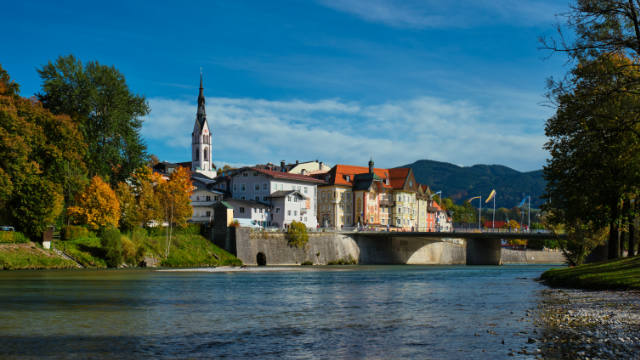
Bavarian Alps, Germany

Berchtesgaden, Germany

Berlin, Germany
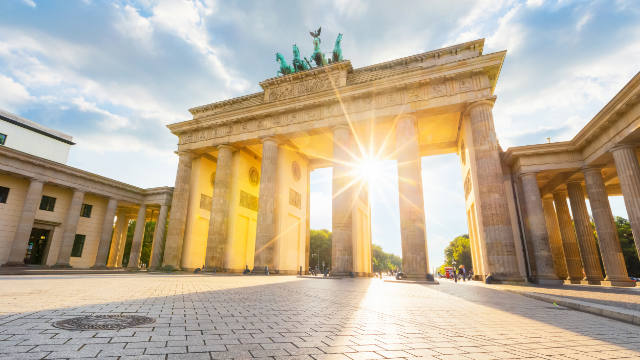
Black Forest, Germany

Bonn, Germany

Brandenburg, Germany

Breisach, Germany

Bremen, Germany

Cologne, Germany

Dortmund, Germany

Dresden, Germany
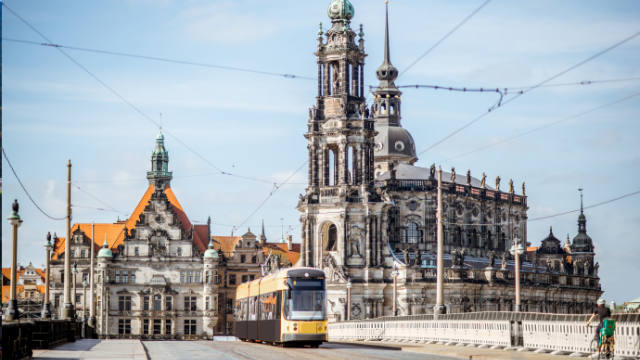
Düsseldorf, Germany

Erfurt, Germany

Frankfurt, Germany
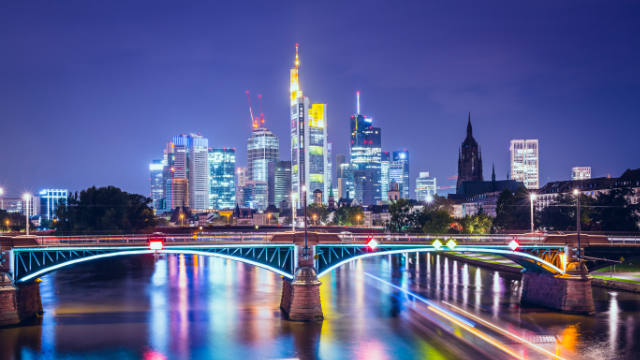
Halle, Germany

Hamburg, Germany
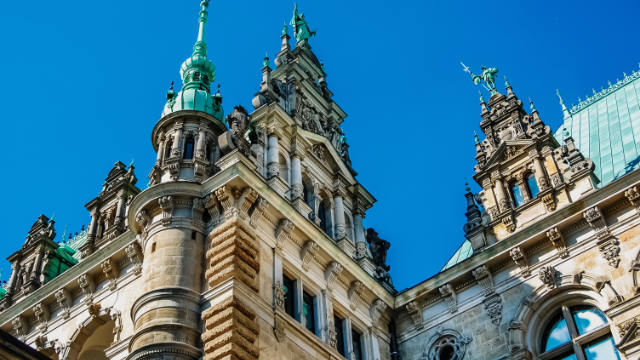
Heidelberg, Germany

Koblenz, Germany

Mainz, Germany

Mannheim, Germany

Mecklenburg-Vorpommern, Germany

Meissen, Germany

Mosel Valley, Germany

Mosel, Germany
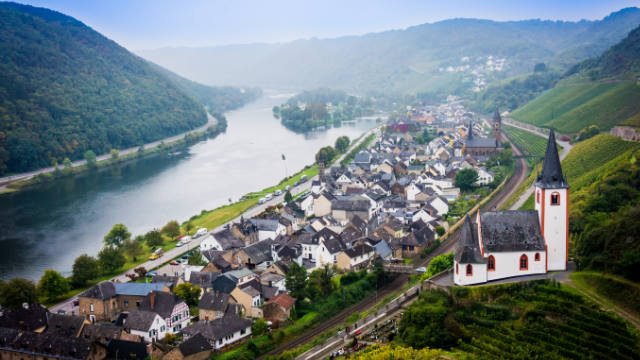
Munich, Germany
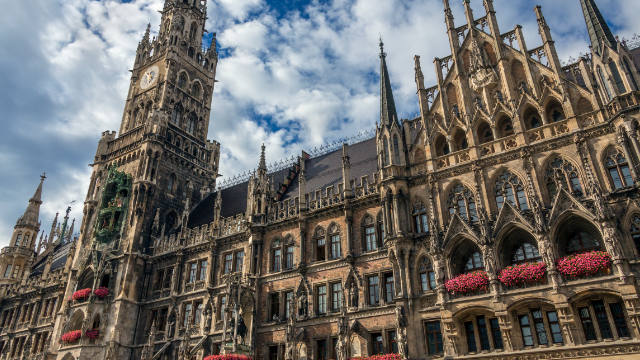
Nuremberg, Germany

Passau, Germany

Regensburg, Germany

Rust, Germany

Sächsische Schweiz National Park, Germany

Selters, Germany

Speyer, Germany

Vilshofen, Germany

Zugspitze, Germany

Lufthansa Strike Recovery Flights Germany Feb 13

Europe Emerging Destinations Report Spotlights Nordics

Lufthansa Strike Frankfurt Munich Flights Feb 12, 2026

EU EES Biometric Border Queues Could Mean 4 Hour Waits

Lufthansa Germany Flight Strike Disrupts Feb 12, 2026

Germany Strikes Hit Local Transport Feb 10 11

EU EES Biometric Border Queues Risk Summer 2026

Germany Transit Strike Risk for City Travel Feb 9

Germany Transit Strike Risk For Cities Ahead Of Feb 9

Transatlantic Bookings Down, US Europe Summer 2026

Berlin Airport Black Ice Shutdown Extends Feb 6

July 2026 U.S. Europe Flight Bookings Lag 2025

Western Europe Strike Spillover Risk For Airport Transfers

Berlin Airport Icing Delays, Rebooking and Refunds

Frankfurt Snow Closes FRA Runways, Diversions Grow

Germany Transit Strike Disrupts Berlin Transfers, NE Rail

Munich Lufthansa A380 Business Seats Start April 2026

Celebrity River Cruises Europe 2028 Bookings Open

Munich Airport Terminal 1 Pier Opens April 2026

Ryanair Website Outage Jan 28, 2026 Check In Risk

EASA Iran Airspace Warning To Lengthen Europe Asia Flights

Lufthansa Tehran Flights Suspended Through March 29

EU Keeps 3 Hour Flight Delay Compensation Rule

Tauck Europe River Cruises Cut Single Supplements 2026

Storm Goretti Germany Trains Halted North of Hanover

